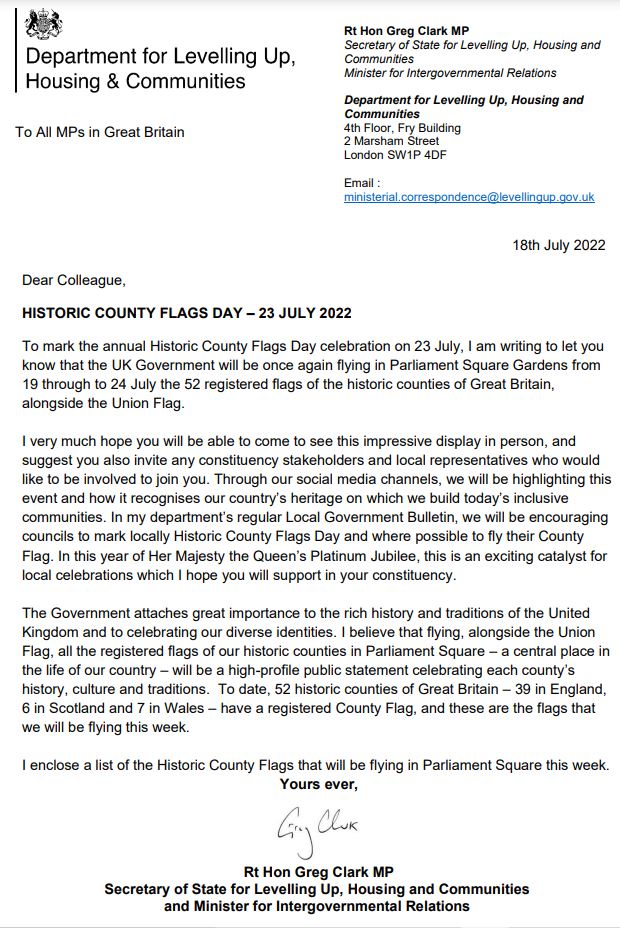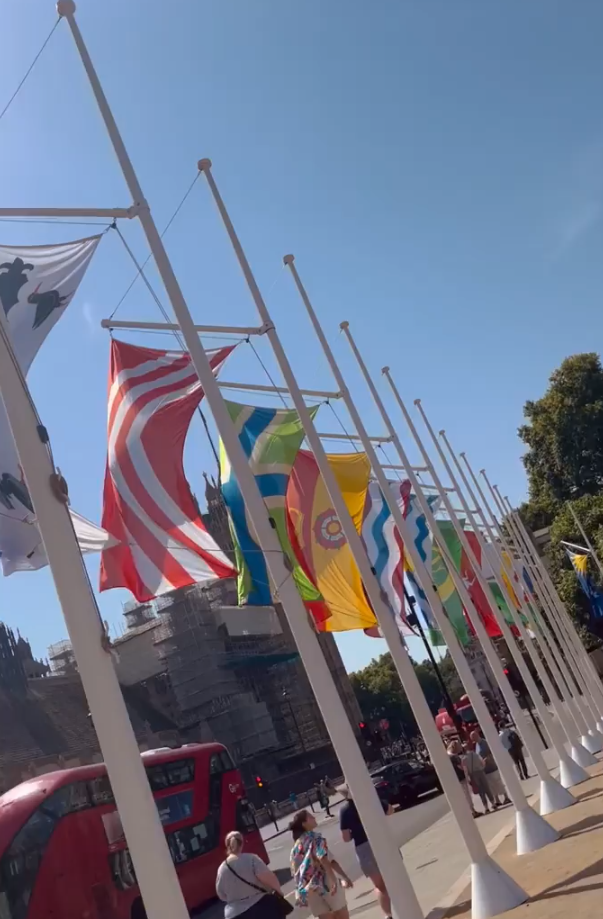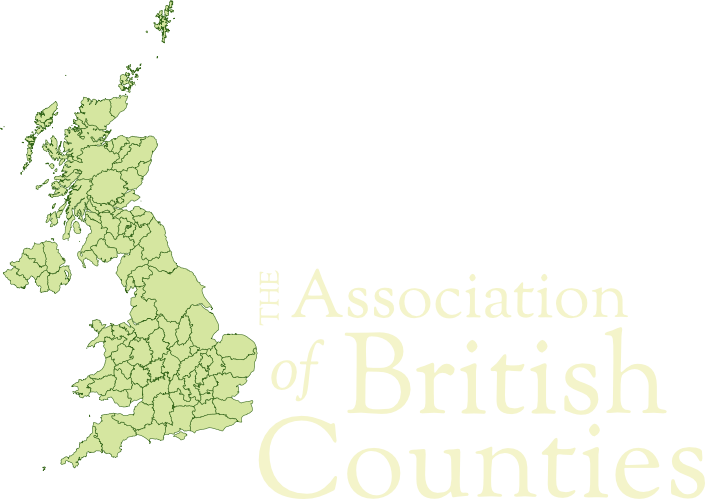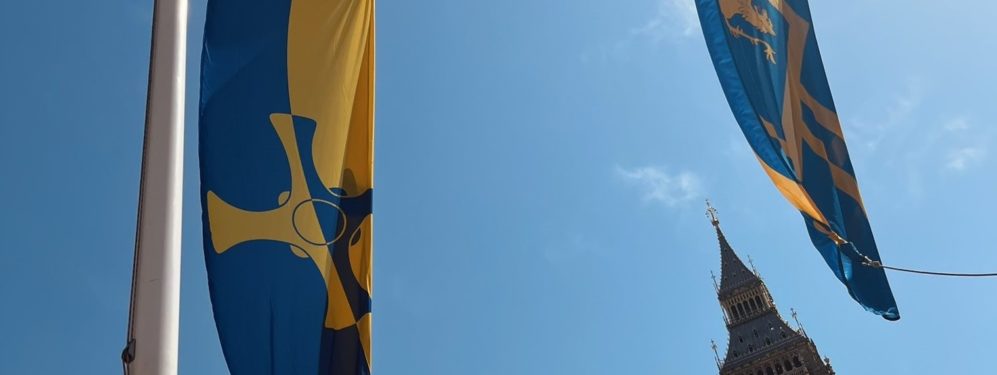Greg Clark, Secretary of State for Levelling-Up, Housing and Communities, has confirmed that the county flags will fly in Parliament Square Gardens from Tues 19th July – Sun 24th July 2022 in celebration of Historic County Flags Day (Sat 23rd July 2022). Our thanks to Mr Clarke and his department.


We’ll be posting more photos during the week.


3 thoughts on “County flags fly in Parliament Square for Historic County Flags Day”
Great article Peter thanks for publishing.
May I slightly digress back into the “Cumbria” palava.
Right now, the pressure on the existing “Cumbria County Council” along with the new unitary authorities of Cumberland and also Westmorland & Furness to keep “Cumbria” alive has paid off for them.
The forceful pressure has given them what ‘they’ all want, being “Cumbria” to be a Ceremonial County (I believe Michael Gove was badgered about this too and completely agreed)
So the “Cumbria” lovers be they in Carlisle, Barrow, Ulverston, Penrith, Kendal et al have had their dearest wish granted.
I am given to understand (not as yet confirmed) that both new Unitary authorities (albeit with them having been given non-Metropolitan County status, which has been stated within the Government’s own paperwork) are going to show “in Cumbria” after their respective names and on future road signs in readiness for 2023.
It is also understood that BBC Radio Cumbria will not drop the unifying Cumbria in all their jingles, broadcasts and talk shows (I have made direct enquiries) and despite me pointing out to the Beeb that eg
Radio Humberside now says broadcasting to East Yorkshire and North Lincolnshire and
BBC Radio Tees no longer saying Cleveland (as much as it is undyingly loved in Middlesbrough, Stockton etc) saying broadcasting to Teesside, North Yorkshire and County Durham
the Beeb will not drop Cumbria and say Cumberland/Westmorland & Furness rather keep
Cumbria alive in every form in their broadcasting.
I for one am bitterly disappointed. Looks indeed like “Cumbria” has beaten every institution into submission.
No such love was shown by Barrovians about leaving Lancashire when they were “Cumbrians” at the stroke of a pen one minute after being Lancastrians in April 1974.
No such love was shown for Westmorland when Kendal was put into “Cumbria” similarly.
Nowhere in Cumberland was sad when “Cumbria” came to life on 01/01/1974.
Little Sedbergh willingly kicked Yorkshire into the kerb and eagerly embraced “Cumbria” and to this day promotes itself as “The Cumbrian book town in the Yorkshire Dales”….
“Cumbria” has won hands down
Depressing stuff, for sure, but not really unexpected.
The creation of the two new unitary authorities was always a step to creating a ‘Cumbria’ combined authority with a ‘Mayor of Cumbria’. The Government has always been quite open and up front about this. It was never an attempt to do away with ‘Cumbria’ but always the intent was to create a ‘region’ of ‘Cumbria’.
Whether this actually comes to pass will depend on the attitude of the new unitary authorities and the future approach of Government to local government and devolution. These things can change on the whim of one Secretary of State so it cannot be taken for granted. Time will tell.
Even without a ‘Cumbria’ combined authority/mayor, the notion of ‘Cumbria’ will no doubt persist for some years, not least because of the continuance of Cumbria Police. It is more debatable how much influence the lieutenancies have on public perceptions of county.
Nonetheless, there are positives. The unitary councils are inevitably going to be more concerned with promoting their own corporate identity than that of a defunct Cumbria County Council. It’s also likely that local media will start using the new council names in news reports, more and more as time goes on. This is certainly what has happened in Wales since the creation of the unitary authorities in 1996.
ABC, of course, isn’t really concerned about local government, combined authorities or mayors. Our concerned is with the historic counties. Unless and until a system of local administration is developed which has a totally distinct identity to that of the historic counties then ‘county confusion’ will continue and the identities of the historic counties and their role in the national life will continue to be undermined. We want to see the historic counties be used by the media as the basis for general purpose descriptions of geographical location, with police, council and mayors only be referred to in stories about these administrative entities.
The bright spot in all this administrative change is that the more complex a local government/devolution system the Government creates, the stronger is our argument about the need for a fixed, general purpose geographical framework, based on history, heritage and commonly held notions of community and identity.
Thanks for the reply Peter. As you say (and I agree with what you have written) there could well be a lot of positives out of this, albeit over a period of time.
Kind Regards
Cliff